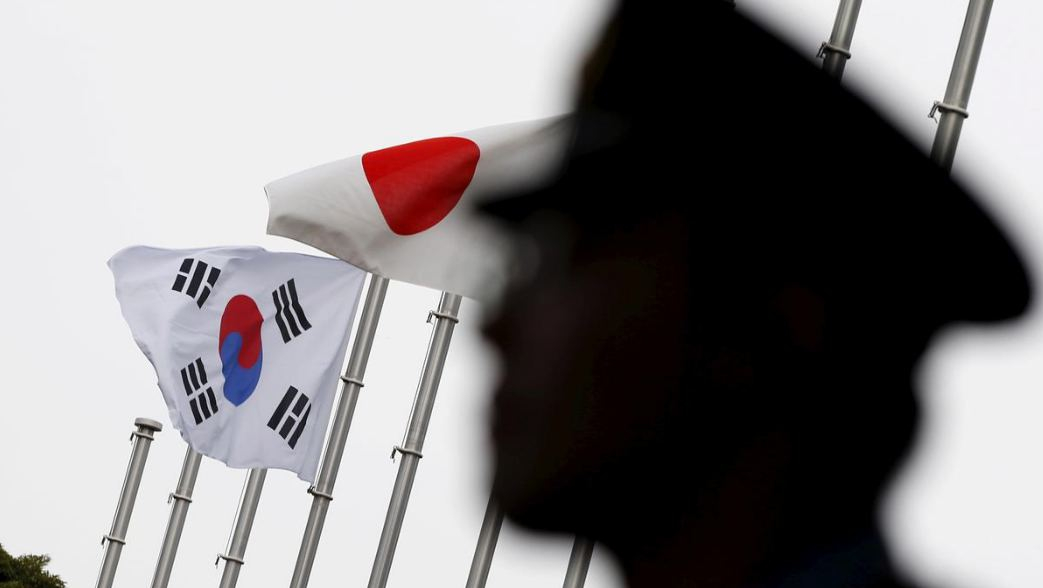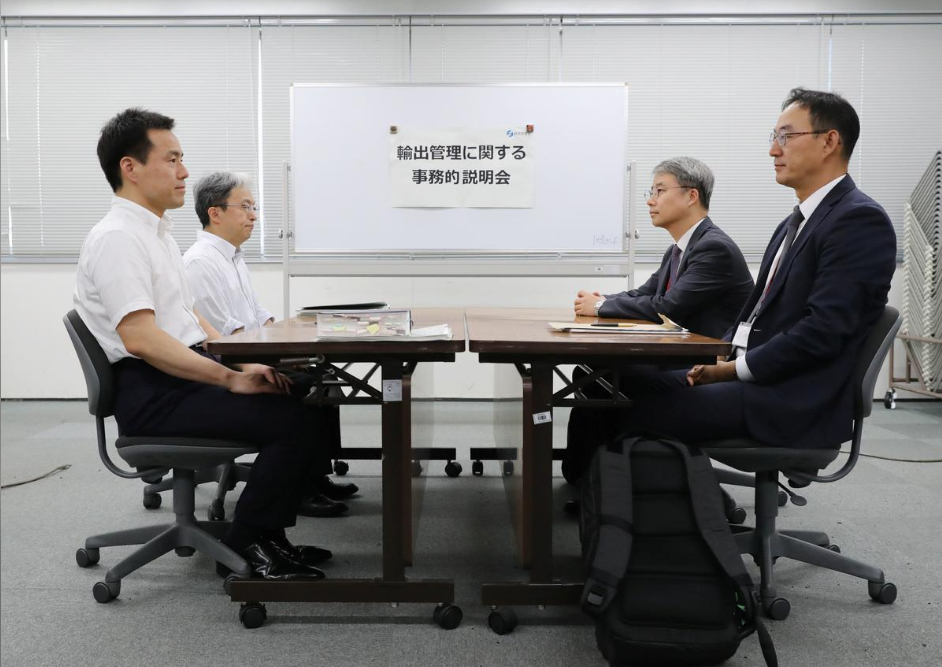

South Korea said on Wednesday a Japanese plan to remove the country from a Japanese list of countries that face minimum trade restrictions would impose tougher conditions without legitimate grounds and consultation.
Japan's plan to remove South Korea from the so-called white list was a very grave matter that undermined the economic and security partnership between the two countries, South Korea's industry ministry said in a statement.
"It is a very grave matter that shakes the foundation of South Korea-Japan economic partnership and Northeast Asian security cooperation that has been maintained and developed for more than 60 years," Sung Yoon-mo, the South Korean industry minister, told a briefing.
"Removal of South Korea from the white list of countries is against international norms and we are worried about its serious negative impact on global value chains and free trade," Sung said.
On Japan's white list are 27 countries, including Germany, South Korea, Britain and the United States.

Working level officials from Japan (L) and South Korea hold a meeting about Japan's recent restrictions on exports of high-tech materials to South Korea in Tokyo, Japan, July 12, 2019. /Reuters Photo
A row between Japan and South Korea escalated on last Saturday, with contested accounts of a frosty working-level meeting the day before that had failed to make progress on a dispute that could threaten global supplies of microchips and smartphone displays. Tokyo lodged a protest against Seoul, saying it had broken an agreement on what the two sides would disclose from the Friday discussions on Japan's curbs of exports to South Korea of some materials used to make high-tech equipment, said Japanese trade ministry official Jun Iwamatsu.
The dispute also appears to be rooted in a decades-old wartime disagreement. It comes amid deep frustration in Japan over what Tokyo sees as Seoul's failure to act in response to a South Korean court ruling ordering a Japanese company to compensate former forced laborers from the Second World War.
(With input from Reuters.)

Copyright © 2018 CGTN. Beijing ICP prepared NO.16065310-3
Copyright © 2018 CGTN. Beijing ICP prepared NO.16065310-3